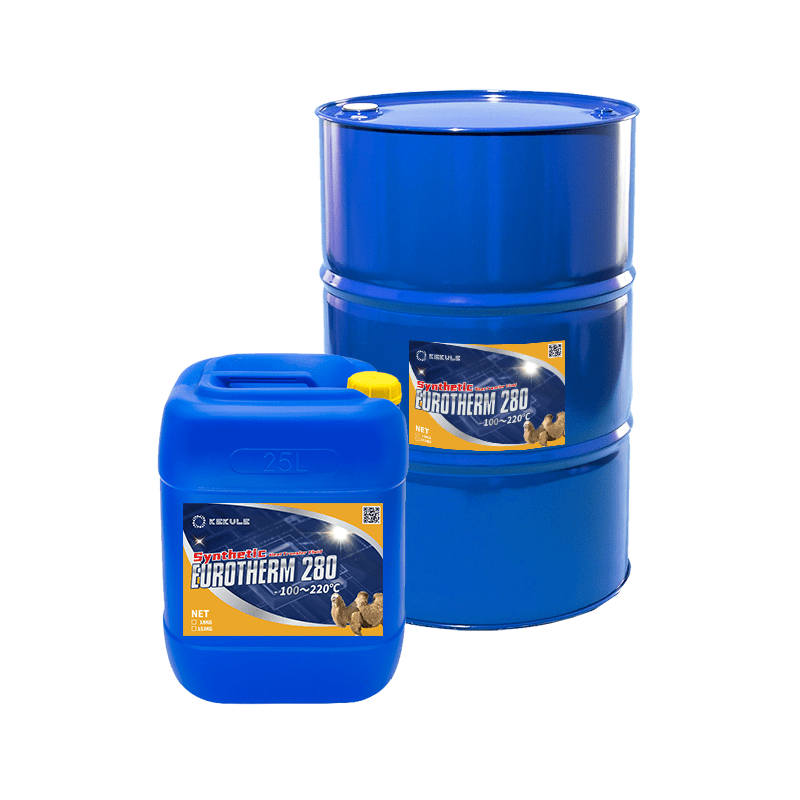The Value of Thermal Security in Heat Transfer Fluid Choice
Wiki Article
Why Heat Transfer Fluid Is Essential for Optimizing Power Transfer in Equipment
The role of warm transfer fluids in optimizing power transfer is critical for accomplishing effective thermal administration throughout various commercial industries. These liquids assist in smooth heat exchange, making certain procedures operate within optimum temperature level arrays and alleviating the danger of getting too hot.
Function in Thermal Administration
Warmth transfer fluids play a crucial duty in thermal monitoring by effectively regulating temperatures in numerous industrial procedures and systems. These specialized fluids promote the transfer of warm in between different elements, making certain ideal operating conditions and avoiding getting too hot. By preserving precise temperature level control, warm transfer liquids allow markets such as chemical production, oil and gas, and power generation to run securely and effectively.The choice of a suitable warm transfer fluid depends on numerous factors, including thermal security, heat capacity, and thickness. High thermal stability makes sure that the fluid can withstand severe temperatures without weakening, while a high heat ability allows it to soak up and launch substantial amounts of warm - heat transfer fluid. Reduced viscosity decreases the energy required for pumping, adding to general system efficiency
In addition, warmth transfer liquids are essential in applications like refrigeration, where they help absorb and dissipate heat throughout the cooling cycle. In solar thermal power systems, these liquids capture and transport solar warm to generate power or provide warm water. Their adaptability to diverse operating problems and ability to maintain regular thermal performance highlight their importance in industrial thermal monitoring, helping with functional connection and improving precaution.

Enhancing System Efficiency
To make best use of the advantages of thermal management, improving system effectiveness through the calculated use of warm transfer liquids is vital. These liquids play a vital duty in optimizing power transfer by assisting in regular thermal policy, which consequently influences the total performance and durability of systems. Reliable warmth transfer results in decreased energy losses, decreased functional prices, and improved reliability of devices. By keeping optimal temperature degrees, warmth transfer fluids help make sure that systems run within their designed parameters, therefore avoiding getting too hot and lowering the risk of component failure.
Sorts Of Heat Transfer Fluids
The diversity of heat transfer fluids emphasizes their essential duty in a variety of commercial applications, each customized to satisfy certain thermal administration demands. These fluids facilitate efficient power transfer and are chosen based upon vital properties such as thermal security, thickness, and warm capacity. The key kinds consist of water, glycol services, oils, and synthetics, each offering distinct benefits.Water is one of the most typical heat transfer tool because of its high particular heat ability and inexpensive. However, its usage is limited by its freezing and steaming points. Glycol mixes, usually utilized in a/c systems, offer a reduced freezing factor, adding versatility in different climates. Mineral oils are preferred for their thermal stability and non-corrosive nature, making them ideal for high-temperature applications.

Artificial liquids, including silicone and aromatic compounds, give phenomenal thermal right here stability and are utilized in atmospheres requiring severe temperature level ranges. These fluids guarantee exceptional efficiency in systems where typical liquids might fail. The selection of a heat transfer liquid is critical, as it influences system efficiency, safety, and durability. Each type needs to be selected to line up with the functional demands and the certain problems of the application it serves.
Environmental and Economic Perks
Utilizing the ideal heat transfer liquids provides significant environmental and financial advantages for industrial operations. Environmentally friendly warmth transfer fluids, often naturally degradable and non-toxic, lessen the threat of soil and water contamination in the occasion of leaks or spills, consequently safeguarding ecological communities and complying with rigid ecological regulations.Financially, the best warmth transfer fluid can considerably minimize operational expenses. Liquids with extensive lifecycle performance reduce the frequency of substitutes and maintenance, lowering downtime and connected expenses. Generally, the tactical use of optimum warmth transfer liquids supports lasting financial development and ecological stewardship.
Choosing the Right Liquid
How does one browse the complicated procedure of selecting the appropriate warm transfer fluid for commercial applications? Selecting the ideal fluid is crucial, as it straight affects system effectiveness, safety, and operational prices. Key factors to consider include thermal security, compatibility with system materials, and operating temperature level range. Thermal security ensures the fluid can hold up against heats without breaking down, while compatibility prevents rust or various other harmful responses with system parts. The operating temperature variety must line up with the system's demands to maintain performance and long life - heat transfer fluid.Furthermore, the fluid's warmth ability discover here and viscosity are critical. A high heat capacity permits the liquid to take in and transfer even more power, enhancing efficiency.
visit the website
Verdict
The critical selection and application of warm transfer liquids are fundamental to maximizing power transfer across different systems. By guaranteeing high thermal security and capacity, these fluids give accurate temperature level control and enhance general system performance.Report this wiki page